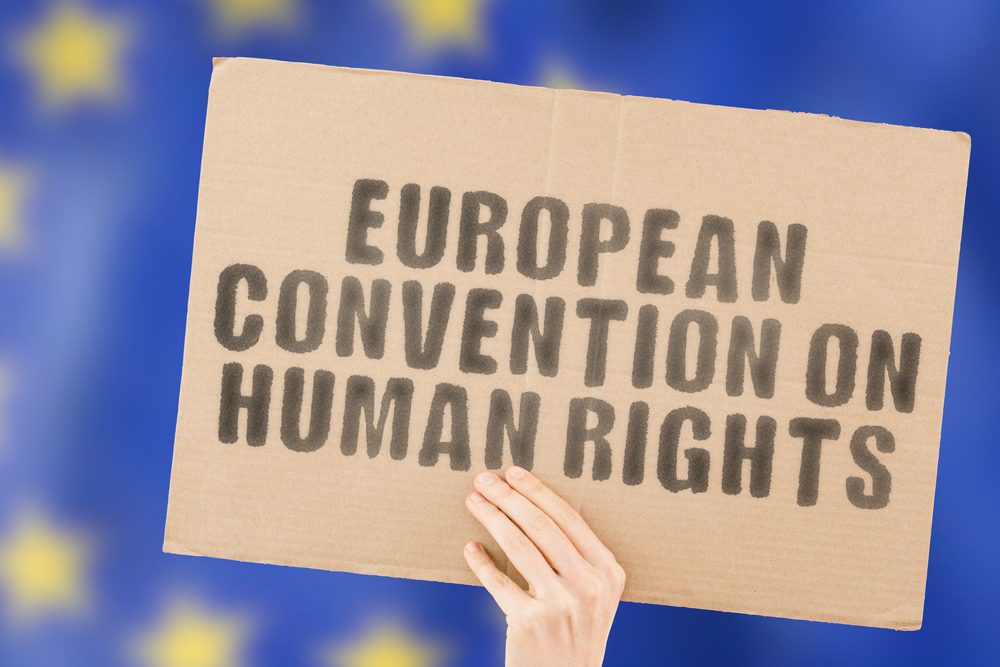
This short guide explains what the concepts listed below mean and how they relate to our Human Rights Act:
What is a constitution?
A constitution is the established principles and rules for how a state is run. The state is the legal name given to a territory or country. A constitution can be written down in one single law, contained in lots of different laws and documents, or established principles, or a combination; each state will have different constitutions. A constitution explains the rules on how the three parts of the state (usually called the branches of state) should work together.
This is important to make sure that no one part of the state such as the Government has unchecked power.
“A constitution puts limits on the 3 parts of the state, balancing them all to work well, and sets out the rights of citizens which these branches need to respect.”
The three branches of the state are explained in detail later, but they are:
The UK’s constitution
The UK does not have a single written constitution. This means that there is no one document that contains all of the rules and principles. Instead, the UK’s constitution is found through laws passed by Parliament and rules established through practices across hundreds of years, and principles established in court decisions (also known as the common law.)
The Human Rights Act is one of the laws that form part of the UK’s constitution. It exists to set out the rights of each person in the UK and the responsibilities of all the branches of state. It is a crucial part of the UK’s constitution because it sets out the rules by which the state should treat people; with dignity, respect and without discrimination.
Not having a single written constitution in the UK means that it can be harder to understand as there’s not one document that sets all the rules for the state. It also means that it can be easier to change the rules, which can be both a good or a bad thing depending on what these changes are and your opinion of what’s good and bad. Changes to the constitution have included:
The separation of powers is an idea which is fundamental to how the UK works. It is about having specific and separate powers and functions between the three branches of state. This is supposed to help keep these three branches independent and accountable, by making sure no one part is too powerful.
The three branches of state are:
The legislature makes the laws.
In the UK, the legislature is Parliament, which is mainly the House of Commons (which MPs are elected to) and the House of Lords (which is made up of peers). Both the “houses” of parliament will debate proposals for laws, look at what changes should be made, and pass or reject laws. When a law is passed, the Crown (currently the Queen) gives it royal assent to make it official. This is ceremonial, as the monarch does not refuse to make laws passed by Parliament official.
Parliament also carries out “scrutiny” work, which examines and challenges the work of the Government. This might be through debates, questions or committees.
We have devolution in the UK, so the legislature also includes the Scottish Parliament, the Welsh Parliament and the Northern Ireland Assembly. These parliaments and assemblies have been given law-making powers by the Houses of Parliament.
The executive is responsible for creating policy, putting proposals for laws to the legislature, and putting laws into effect.
We call this the government.
In devolved nations (Scotland, Wales, and Northern Ireland) the executive includes the First Ministers and governments of the devolved nations.
The judiciary decides whether laws are being followed or if they have been made properly.
This is done through a system of courts and tribunals.
In the UK, the judiciary is made up of the judges and officers of the courts of law. These are overseen by the Supreme Court, the highest court in the UK. The courts in the UK can decide on conflicts between state bodies, between the state and individuals and between individuals. In the UK we have 3 legal systems; one each for England and Wales, Scotland, and Northern Ireland. The Supreme Court is the top court for all these systems.
It is important that these branches of government are separate so that one branch of government doesn’t hold all (or too much) power. Each branch is therefore able to check on the other two branches to ensure that they are not overstepping their role. This means that there is a system of checks and balances. This should prevent each branch from abusing their power and helps ensure fairness in our system, making sure every part of the state has to play by the rules.
In the UK, we do not have a strict separation of powers. The branches of the state are closely linked. For example, the Prime Minister is both head of the executive (Government) and generally the leader of the majority party in the legislature (Parliament). This is because to form the government in the UK a political party has to win more local elections than other parties to have the most MPs. This means the leader of that party will be the head of the Government, the Prime Minister, and will usually have the most MPs who can vote to pass laws in parliament.
There are still checks and balances in place to ensure that no branch of government has too much power. For example, the legislature can keep check on whether the executive is doing their job through things such as Ministers questions, debates and investigations by committees. Prime Minister’s Questions is another example of this.
The judiciary (courts) are independent of both the executive and legislature. In the UK judges are not elected (unlike some other countries) so they are not accountable to voters. Judges are selected by the Judicial Appointments Commission, based on their merit; they are independent. People can start a legal case and ask a judge to look at whether the right laws and processes have been followed or broken. This includes bringing cases that are about the actions or decisions of the executive/government. This type of case is usually a judicial review. Judicial review is a tool to examine whether decisions by public bodies have been made in a lawful way, using the correct processes.
Parliamentary sovereignty means that Parliament is the supreme legal authority in the UK. This means that:
The Human Rights Act does not limit parliamentary sovereignty. Section 19 of the HRA requires the government to make a statement on whether any laws they are proposing to parliament are compatible with HRA rights; but this is advisory only. This means that the government can say that a proposed law is not compatible with human rights but parliament could still pass this law.
This is because parliament has ultimate authority; the Human Rights Act does not change that. As noted above judicial review means a person or body asks the courts to look at a law (or decision or action) to decide if the right laws and processes have been followed. This includes whether the law, action or decision supports or breaches the rights in the Human Rights Act. If a court decides the Human Rights Act has not been followed or if a law passed by parliament does not support the rights in the HRA then the courts can issue a Declaration of Incompatibility under section 4 of the HRA. This is the court saying that it believes that a particular law is not compatible with the rights in the Human Rights Act. This does not automatically change the law. Instead, it is the responsibility of Parliament to decide whether to change the law or not. This demonstrates how parliamentary sovereignty works. This means that these declarations are not a strike down power, but a way to flag human rights incompatibility of UK law.
The rule of law is a principle that means that every person and body, whether public or private and including the state, are subject to the law. This means that no one is above the law. The rule of law requires that laws should be:
The rule of law means that people can have certainty on what the law is, access that law, and seek accountability when the rules may not have been followed. This includes accountability where the executive/government may have overstepped the mark, and courts play an important role in helping people seek justice and ensure that the rule of law is applied.
Our Human Rights Act is an essential part of the rule of law in the UK, it “brings rights home”, by taking 16 of the fundamental human rights in the European Convention on Human Rights and putting them into our law here in the UK. This means that individuals can challenge the government, including local government and public authorities and services without having to go to the Court in Strasbourg, France. You can read BIHR’s explainer on the ECHR here.
The Human Rights Act puts legal duties on the state to respect, protect and fulfil our rights. This legal duty must be met at all times, especially during times of crisis. Our Human Rights Act helps to ensure accountability so that no one, including the Government, is above the law. It is our Human Rights Act which says that the state must not treat us in an inhuman or degrading way (Art 3); that our private and family life must be respected (Art 8), our liberty (Art 5) and our right to be free from discrimination (art 14). It is important to note that whilst the rights come from the Convention, they are now applied here at home, and it is the Human Rights Act (not the Convention) which creates the legal duties for people in the UK to hold government and public bodies to account.
The courts also have an essential role due to the Human Rights Act. They must interpret laws as being compatible with the Human Rights Act and if this cannot be done, they can make a declaration of incompatibility. However, as mentioned, this declaration does not change the law. Parliament is the one who decides whether to change laws to ensure that they are compatible with the European Convention on Human Rights.
Find out more about human rights law.

What is the Human Rights Act?
Find out about the Human Rights Act 1998 and how it applies across the UK.
What is the Human Rights Act?

Find out about the Human Rights Act 1998 and how it applies across the UK.

What is universality?
Read our explainer on the principle of universality and how human rights apply to everyone.
What is universality?

Read our explainer on the principle of universality and how human rights apply to everyone.

Whats in the European Convention on Human Rights?
A section-by-section guide to the ECHR.
Whats in the European Convention on Human Rights?

A section-by-section guide to the ECHR.